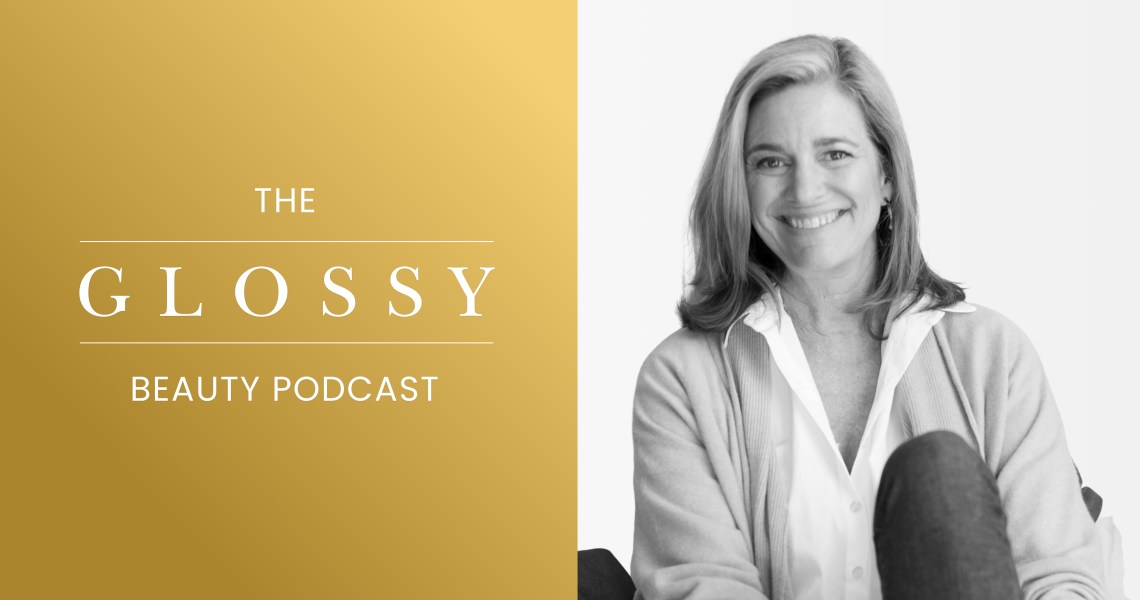Subscribe: iTunes | Stitcher | Google Play | Spotify
If you asked her 10 years ago, Hillary Peterson would tell you she was not all that interested in beauty.
With a background in marketing and an interest in beauty that didn’t extend much further than her own personal skin care, Peterson never thought she would become the founder and CEO of her own natural skin-care company. However, following a thyroid cancer diagnosis in her 30s, she became much more interested in living her healthiest lifestyle, specifically with the products she was consuming.
“I just started looking deeper into the beauty industry and what ingredients were being used to make products, and it was quite disappointing to me,” said Peterson. “I was purchasing products and being told that if I used them, I would look and feel more beautiful, and yet they contained toxins. From that place, I launched into a pretty long period of discovery, looking into products’ ingredients, wellness and really understanding what it would take to do something differently — to innovate and disrupt an industry that felt like it was ripe for disruption.”
It was from this desire to disrupt that Peterson created True Botanicals. The company, which features a wide range of products from facial serums to shampoo and conditioner, touts a Made Safe certification and uses independent clinical trials to test the efficacy of each product. True Botanicals has also started to expand its retail strategy, opening a flagship store in California at the end of 2018. It hopes to continue that expansion through a mix of temporary and permanent retail settings.
On this week’s episode of The Glossy Beauty Podcast, beauty editor Priya Rao sits down with Hillary Peterson, the founder and CEO of True Botanicals, to discuss starting a new business in a crowded market, leveraging a direct connection with customers and evolving the brand’s retail strategy. Edited highlights below.
If your products are high-quality, it doesn’t matter how crowded the market is
“I always love using a restaurant analogy. People will say, ‘Why would you open a restaurant when there’s so many?’ If you open a restaurant that makes exceptional food, you will be a very busy restaurant. And if that food happens to be made with sustainably farmed, gorgeous ingredients, all the better. I say the same is true for the beauty industry. First and foremost, to change any industry, you need to create something that people want, because I don’t believe that consumers wake up in the morning, look in the mirror and say, ‘Oh wow my skin is dry,’ or ‘I really don’t like this acne,’ or ‘My rosacea is really inflamed and irritated. I should go find a product that’s made safe for people and the planet.’ I think people want to find a product that helps them resolve this, and then if it happens that the products are thoughtfully made, fantastic.”
The power of a direct connection with customers
“In the end, it’s become clear to us that one of the most powerful things we have as a direct brand is a direct relationship with our customers. That means we can coach them, and support them in their journey of wellness and skin care. It means we can learn from them what might be missing in our product range, from their perspective. A great example is our Moisture Lock Overnight Mask that we just launched. That’s a product that came directly from customer feedback, where they were saying to us, ‘We love your products — they work — but there are certain times of the year where we just need more moisture.’ And a lot were turning to lotions or creams. That really bothered me, because I’m so aware of the fact that those products are made with wax, which clogs pores and is counterproductive. So we took on the challenge of creating something super hydrating, and that’s just a small case study of why we felt that this direct relationship was so beneficial to us and our customers.”
Building out a retail strategy
“As we build our following across the country, what we have seen is that when we show up through pop-ins –which we’ve been doing over the last year, basically invited by partner brands to come into their store with products, and have events — is that people are so excited to talk to us and ask questions in person, and touch and feel new product. So what we’ve found is that it’s just another way to connect. Connecting in person is never to be underestimated, in terms of the power it holds and how much people enjoy that as part of the overall experience. So pop-ins will be with partner brands — we’ve developed quite a few partners that we really enjoy collaborating with — and then pop-ups, eventually. We’ll take over spaces in some key markets where we have a particularly strong following, and I think that will ultimately evolve to having stores in those markets.”




